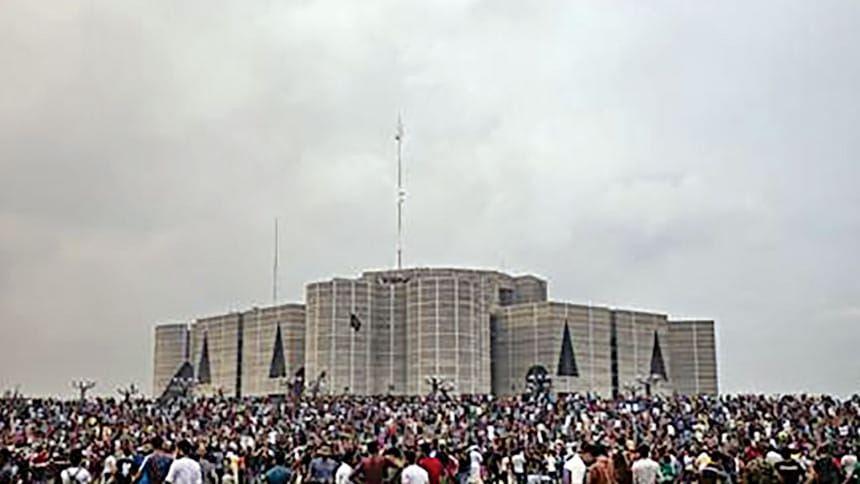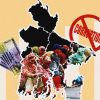Another day passes without govt

The country continued to stagger in a power vacuum for the second day as President Mohammed Shahabuddin dissolved the parliament yesterday without providing an outline of an interim government or a clear transition path in sight. He also set off a 90-day countdown till the general elections as mandated by the constitution with the dissolution of the 12th parliament to make way for an interim regime.
With the entire police force remaining absent and without any directives or announcements about law and order, students and volunteers took up the responsibility of directing traffic on the main thoroughfares of Dhaka. Police stations and outposts remained deserted as hundreds of them had been burnt down or razed to the ground in revenge for police brutality on student protesters and anti-government campaigners.
The power vacuum comes in the wake of Bangladesh's former prime minister Sheikh Hasina resigning on Monday and fleeing the country amid a mass uprising where hundreds of thousands began to march towards Dhaka.
The president met with the representatives of the anti-quota campaign calling themselves the Anti-Discrimination Student Movement at the Bangabhaban with the chiefs of army, navy and air force. The meeting was meant to mainly discuss the students' proposed outline of the interim government and the people who would be running it.
Earlier in the day, one of the key leaders of the campaign, Nahid Islam, proposed Nobel Laureate Dr Muhammad Yunus as head of the interim government adding that he had agreed to shoulder the responsibility.
"We want to see the process rolling by the morning. We urge the president to take steps as soon as possible to form an interim government headed by Dr Yunus," Nahid said who came under the spotlight when he was abducted by law enforcement agencies during the height of the student protests. Nahid was found a day later by the side of a road with bruises and clear signs of torture.
Nahid reminded everyone that no government other than the one the students had proposed would be acceptable. "As we have said, no military government, or one backed by the military, or a government of fascists, will be accepted."
Yunus, attending the Paris Olympics as a special guest, had initially been reluctant to accept this proposal but eventually gave in to repeated requests from the students.
"If the students can sacrifice so much, if the people of the country can sacrifice so much, then I also have some responsibility. Then I told the students that I would accept," he said. Waves of violence rocked Bangladesh as the student protests led to a strong anti-government campaign leading to at least 400 deaths.
While the Election Commission remains completely in the dark—as confirmed by a top official—about the next polls, it is becoming increasingly likely that the envisioned transition to an interim government will not be in strict adherence to the constitution.
Shahdeen Malik, a Supreme Court lawyer and a noted commentator on legal issues said it might not be possible to fully abide by the constitution in the context of such an extraordinary political upheaval in Bangladesh in recent days.
"This has happened in the past. Since it is not possible to follow the constitution to make reforms for national interest, these reforms could be legitimised by amending the constitution later," he told The Daily Star.

 For all latest news, follow The Daily Star's Google News channel.
For all latest news, follow The Daily Star's Google News channel. 








Comments